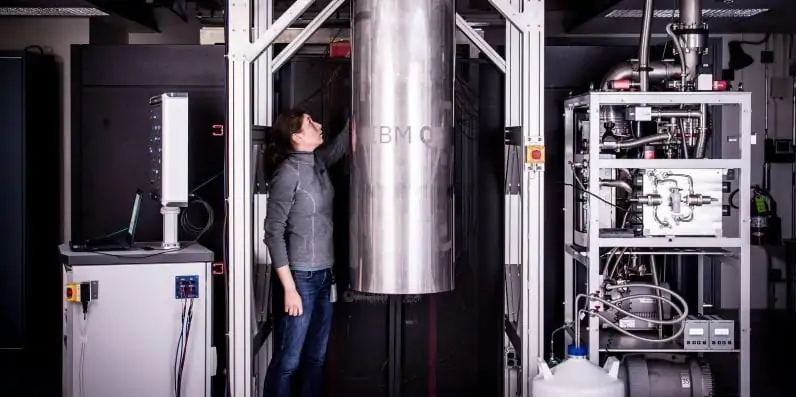A pair of physicists from the Immanuel Kant Baltic Federal University (IKBFU) in Russia have proposed an entirely new vision of the cosmos. Their research combines the bizarre conclusion that we are living in a computer simulation with the “many worlds” theory.
The outcome of the speculation developed by the two physicists is that, essentially, our entire universe is part of a quantum computer. More, of an immeasurably large quantum computer that spans “countless” multiverses.
Quantum systems, a bit like Google's quantum computer with which the Mountain View company claims to have achieved “quantum supremacy”. These are devices designed to work with subatomic particles (qubits) that perform quantum computations.
Today these computers are used mostly to design the information technology of the future, but once fully operational they could one day perform calculations so advanced as to be inconceivable not only for humans, but also for current computers themselves.

Artyam Yurov e Valerian Yurov, the IKBFU researchers behind the above study, have their own quantum cosmology. They argue that everything in the universe, including the universe itself, should be viewed as a quantum object. This means that to experience “quantum reality” we don't need to look at subatomic particles or qubits: we are already there. Everything is quantum!
The study of the two Russian physicists
Yurov and Yurov begin their paper with an already strong statement. First because Russian computers are far from being quantum computers. Second, because they claim to have overturned the major visions of theoretical physics:
“We present a new quantum vision of cosmology, based on the quantum model proposed by Michael and Hall. Based on the idea of that model we consider finitely many homogeneous and isotropic classical universes whose evolutions are determined by the standard Einstein-Friedmann equations but which also interact with each other quantum mechanically.”
The paper goes on to mathematically describe how our entire universe is itself a quantum object. This means that, like a tiny subatomic particle, it exhibits quantum properties that should include superposition. On the theoretical level, our universe can be simultaneously in different places and in different states.
That's not all: our universe would not only be able to be in more than one place or state at a time, but it would have such mechanics that it could also interact with itself in multiple states at the same time. And this is starting to overtake MY calculation skills.
Infinite universes, or infinite states of a single universe, interacting with each other.
The problem with expanding quantum mechanics to large objects (like say a single cell) is that other theoretical quantum features stop making sense anymore. At a certain point the "possibilities" of being anywhere and in any way vanish to make room for a specific object, in a specific state.
In this case the "quantum maturity“, or the way quantum objects “collapse” from multiple states to the physical state we see in our classical observations, does not appear to work on larger scales such as the cosmic one.
Yurov and Yurov have a simple solution for this: they state unequivocally in their work that “decoherence simply does not exist”.
The lead author of the study Artyom Yurov said: “I myself was skeptical of the idea. Because it is known that the larger a body is, the faster it collapses. Even a bacterium collapses very quickly, and here we are talking about something much larger than a bacterium. We are talking about a quantum body. We're talking about the entire universe".
But the more the Yurovs explored the “many interacting worlds” (MIW) theory that all quantum functions physically manifest in alternate realities (the cat died on one world, I live on another, on yet another Futuroprossimo law etc. etc.), the more they realized that not only does the theory make sense, but mathematics and science seem to work better if everything, including the universe as a whole, is assumed to have quantum characteristics. From the quantum world to the quantum universe, to put it briefly.
Many universes, all connected in a quantum computer
The researchers then used their assumptions to come up with calculations that expanded the “many worlds” theory to include more universes. The big idea behind this quantum cosmology is that, if the universe is a quantum object, it must interact with something, and that something is probably other universes.
What the research does not explain (or more likely it's me who can't get there) it is WHY our universe and everything that exists would exist as something analogous to a single qubit in a giant quantum computer spanning multiple universes at once. If humans are not the magical observers causing the quantum universe to “collapse” into tangible classical reality, we may be cogs in the machine ourselves.
Maybe the universe is a qubit, maybe we are the qubits. Maybe we are just noise that the universes ignore as they perform their calculations.
Maybe it's true after all, we live in the simulation of a mega quantum computer. Except instead of being an advanced creature's favorite games, we'd just be some math aspects that help the operating system run.


